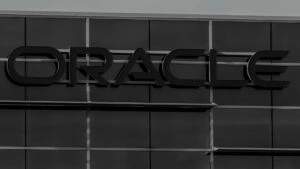Update Wed, 18.09.2024, 10:15am
After last week’s defeat, Google has now won a victory in court. This is unlikely to be the last case between the EU Commission and the tech giant.
In the dispute over a competition fine of 1.49 billion euros, Google has won a victory before the General Court of the EU. The EU Commission had not sufficiently proven that Google had abused its dominant position in search engine advertising in the “AdSense for Search” service, the judges ruled. The ruling can still be appealed before the European Court of Justice.
With “AdSense for Search”, other websites can integrate Google search masks and provide services in return. Financially, “AdSense” is more of a niche product for Google. According to the tech giant, it had already made changes to the model before the EU Commission’s decision.
Although the judges confirmed most of the EU Commission’s findings, they annulled the fine. The Brussels authority had not taken all relevant circumstances into account when determining whether Google’s contractual clauses were abusive.
Last week, Google suffered a defeat before the ECJ: The judges confirmed a fine of 2.4 billion euros imposed by the EU Commission in connection with Google’s price comparison service Google Shopping. The tech giant had abused its market power by favoring the results of its own price comparison service over those of its competitors on the page for general search results. Google had already made changes here before the ruling.
For years, Brussels has been struggling with how to prevent distortions of competition caused by the giant tech companies. In addition to laws such as the Digital Markets Act (DMA), which is intended to combat the dominance of large online platforms, the EU Commission’s competition watchdogs have imposed several fines totaling a good eight billion euros on Google in recent years. Although the company quickly digested these with its booming online advertising business, in some cases it had to change its business model.
dpa
—
Update Wed, 18.09.2024, 10:05am
In the dispute over a competition fine of 1.49 billion euros, Google has won a victory before the General Court of the EU.
The EU Commission had not sufficiently proven that Google had abused its dominant position in search engine advertising in the “AdSense for Search” service, the judges ruled. The ruling can still be appealed before the European Court of Justice.
dpa
—
Wed, 18.09.2024, 4:30am
On Wednesday, the EU General Court will once again hear a competition fine against Google. In 2019, the EU Commission imposed a fine of 1.49 billion euros and accused Google of abusive practices in online advertising.
At the time, it was claimed that other providers had been unlawfully obstructed in search engine advertising in the “AdSense for Search” service. With “AdSense for Search”, other websites can integrate Google search masks. Financially, “AdSense” is more of a niche product for Google. According to the tech giant, it had already made changes to the model before the EU Commission’s decision and subsequently defended itself against the penalty before the EU court, which has now announced its verdict.
The decision can then be appealed to the EU’s highest court, the European Court of Justice (ECJ).
Last week, Google suffered a defeat before the ECJ: The judges confirmed a fine of 2.4 billion euros imposed by the EU Commission in connection with Google’s price comparison service Google Shopping. The tech giant had abused its market power by favoring the results of its own price comparison service over those of its competitors on the page for general search results. Google had already made changes here before the ruling.
For years, Brussels has been struggling with how to prevent distortions of competition caused by the giant tech companies. In addition to laws such as the Digital Markets Act (DMA), which is intended to combat the dominance of large online platforms, the EU Commission’s competition watchdogs have imposed several fines totaling a good eight billion euros on Google in recent years. Although the company quickly digested these with its booming online advertising business, in some cases it had to change its business model.
dpa






